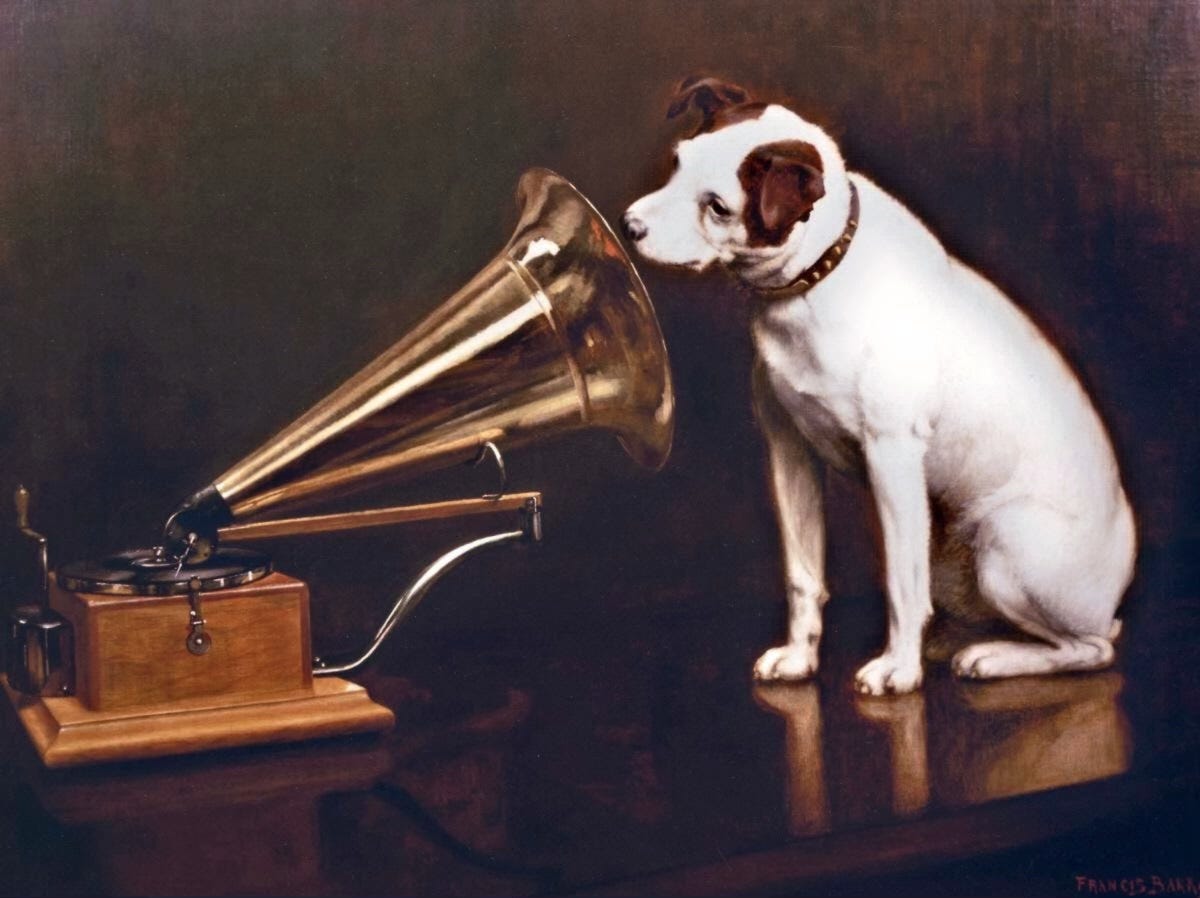Notebook: Listening Session
In 2024 record numbers are doing their reading by ear. What’s going on, and what does it mean for writers and readers?
Listening, as a supplement or alternative to reading words with one’s eyes, has more and more become a feature of modern consciousness. I can remember my first encounters with audiobooks. Peggy Miller, the boss’s legendarily stately secretary at my first publishing job years ago at Farrar Straus & Giroux, used to click off once a month on her tidy heels to record books for the blind. I would work sometimes in the Andrew Heiskell Braille and Talking Books Library in Chelsea, which had big reel-to-reel listening devices for books. (The Heiskell Branch website notes, “when applying for a patent for his tinfoil phonograph in 1877, Thomas Edison listed ‘phonograph books, which will speak to blind people without effort on their part’ as one of the ten potential uses for his invention.”) I had friends who had multi-cassette copies of (respectively) Suetonius’s Lives of the Caesars and Shelby Foote’s book on the Battle of Vicksburg (his voice still in the air from Kevin Burns’s epic first series on the Civil War) strewn about their cars. (The earliest big audiobook producers—Books on Tape, Recorded Books, and Blackstone Audio—were founded by commuters.) But now that we carry gadgets around in our pockets that connect directly to our brains, these reading voices seem ever more intimately to permeate daily consciousness.
The audiobook market has been growing and growing since the introduction of smartphones and has been a lifeline for publishers and writers, expanding steadily by over 50 percent since 2018 and now accounting for around 10 percent of book sales. (There was a bit of a dip during the pandemic lockdown, alongside a rise in old-fashioned reading, likely because so many people stopped commuting.) In 2023 audiobook sales reached $2 billion, and more than half of all adults reported they had listened to an audiobook. Library patrons, who set a record in 2024 of over a million digital checkouts, borrowing worldwide over 739 million ebooks, audiobooks, and digital magazines through digital library book distributor Overdrive’s Libby and Sora apps, checked out 278.3 million audiobooks (up 19 percent over the previous year) compared to 366.2 million ebooks (up 7 percent).


